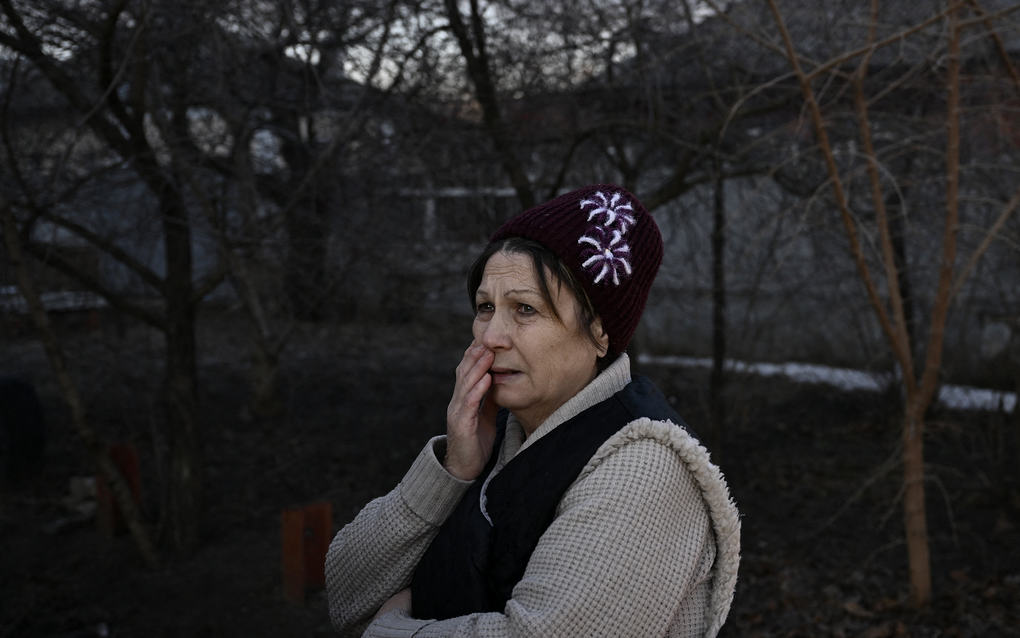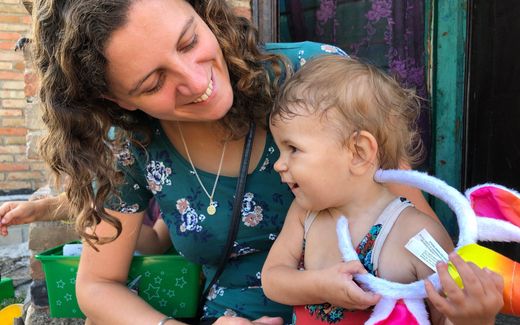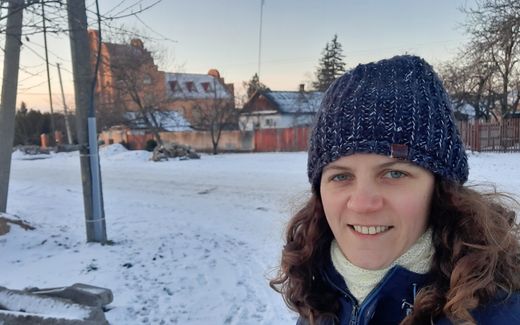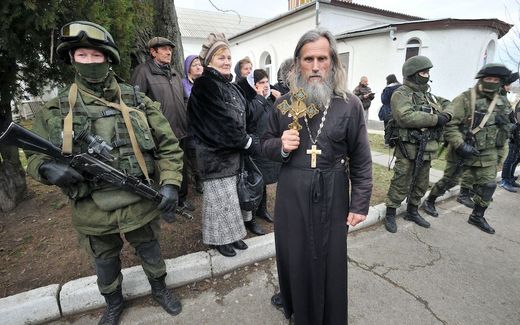What part of Ukraine does President Putin settle for?
24-02-2022
Eastern Europe
Floris Akkerman, RD

beeld AFP, Aris Messinis
Eastern Europe
Vladimir Putin recognised on Monday the independence of the Donetsk and Luhansk People's Republics in eastern Ukraine. There is a lot of dispute about the borders of these regions.
In Russia, a poster from the 1920s of the Soviet Union became trending again this week. "Donbas, the heart of Russia", reads the text. On both sides of the text, a miner. It is a poster with the Donbas region as a red heart. Red blood vessels run into the Soviet Empire, Ukraine, the Baltic countries and Russia. The area is known for its coal mines and factories.

When asked whether there will be a serious Russian invasion in recent weeks, no Ukrainian, except for a few, believed in it. For various reasons. They did mention unrest in eastern Ukraine: attacks, provocations, and Russia's recognition of the Donetsk and Luhansk People's Republics. On Monday, Vladimir Putin made this happen: the Russian president recognised the independence of these two people's republics.
The separatists themselves want more. They conquered part of the Donbas, including the cities of Donetsk and Luhansk, in 2014 and 2015, with the support of the Russian army. In the Donbas cities of Slovyansk, Kramatorsk and Mariupol, they lost out to the Ukrainian army and militias. The separatists prey on the entire region, as the Soviet poster says. In their constitution, they claim that the two people's republics cover the entire Donbas. For Ukraine, the Donbas consists of the Donetsk and Luhansk regions.
Fears
On Tuesday, Putin was clear about what he means by the territory of the people's republics. It concerns the entire Donbas, said the Russian president. So also, for the parts that are under the control of Ukraine. "We recognise the fundamental documents of the People's Republics, including the constitution. And the constitution describes the borders within the Donetsk and Luhansk regions when they were part of Ukraine." This fuels fears among Ukrainians living in the part of the Donbas now under Kyiv's control.

By contrast, the separatists will receive Putin's words with cheers because they gain military support. Putin's treaty with the rebel leaders' states that both sides will work together to protect their sovereignty and territorial integrity. As an extra push, Putin received formal permission from the Federation Council, the Russian upper house, to deploy troops abroad on Tuesday.
This causes concern for a direct military confrontation between Ukraine and Russia. Ukrainian soldiers, ready to give everything for their country, may soon be at shooting distance against a stronger Russian army. If the Russian army and the rebels want to push the borders, the Ukrainian army will defend its own territory. Conversely, Kyiv can be tempted to shoot at a Russian provocation.
Prey
Mariupol, in particular, is considered an attractive strategic prey for the rebels. It is a seaport and industrial city with railway lines into the Donbas. Conquest increases the chances of economic development for the rebel territories. Losing Mariupol would be a blow to Kyiv. The city is a fortress that will defend Ukraine tooth and nail. Also, Sloviansk and Kramatorsk have important factories and railway junctions.
Putin stressed on Tuesday that all border disputes must be resolved through consultation. "We expect all controversial issues to be resolved during negotiations between the current Kyiv authorities and the leadership of these republics."

The Ukrainian government will not be interested in that. For Kyiv, Putin's recognition is a violation of sovereignty. "We are on our land," said President Volodimir Zelensky after Putin decided to recognise it. "We are not afraid of anything or anyone. We are under no obligation to anyone. And we're not giving up anything."
This article was translated and edited by CNE.news and previously published in Dutch daily Reformatorisch Dagblad on February 23rd, 2022.
Related Articles





